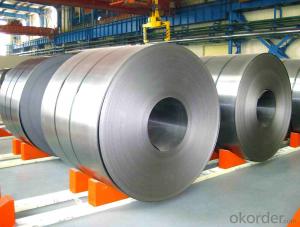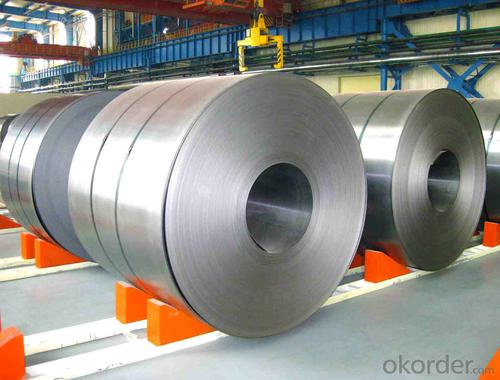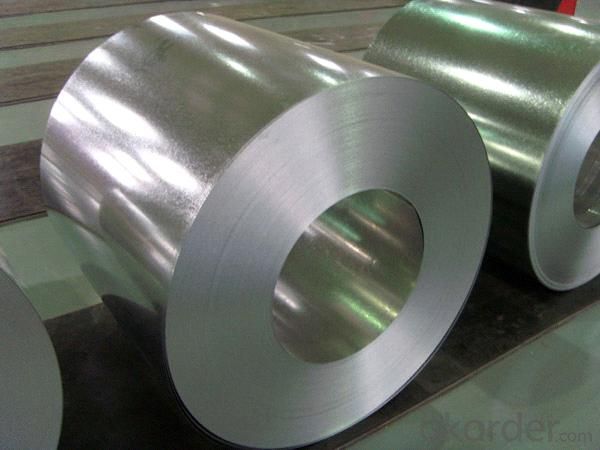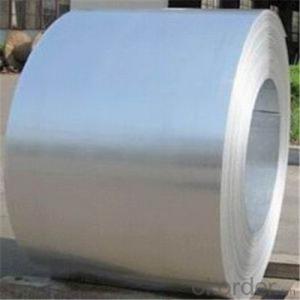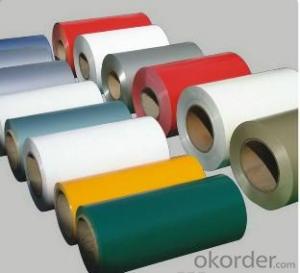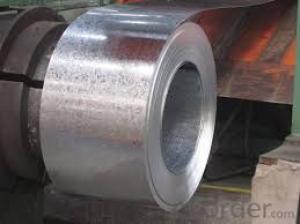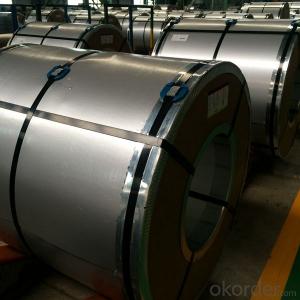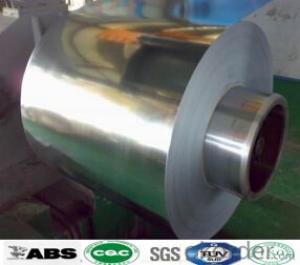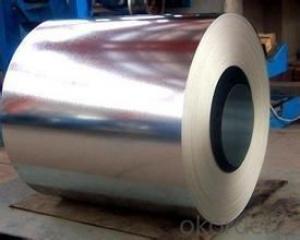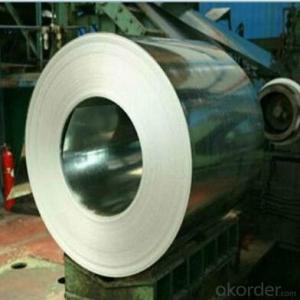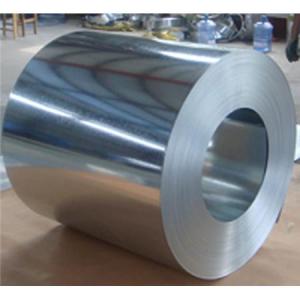Hot Dipped Galvanized Steel Coil SGCC Standard DX51D China Producter
- Loading Port:
- China main port
- Payment Terms:
- TT OR LC
- Min Order Qty:
- 10 m.t.
- Supply Capability:
- 10000000 m.t./month
OKorder Service Pledge
OKorder Financial Service
You Might Also Like
1.Description of Hot Dipped Galvanized Steel Coil SGCC Standard DX51D:
Galvanized steel coil can be used outside because of its natural ability to avoid rust or corrosion. The coil itself is usually available in different dimensions. It may range from from 6 inches to 24 inches wide (15 cm to 51 cm), and up to 10 feet (3 m) long when rolled out flat.
2.Specifications of Hot Dipped Galvanized Steel Coil SGCC Standard DX51D:
1).strong corrosion resistance
2).surface quality
3).conducive to deep processing,such as the embossed PPGI,printed PPGI&punching PPGI
4).economy and practicality
3.Hot Dipped Galvanized Steel Coil SGCC Standard DX51D Images:
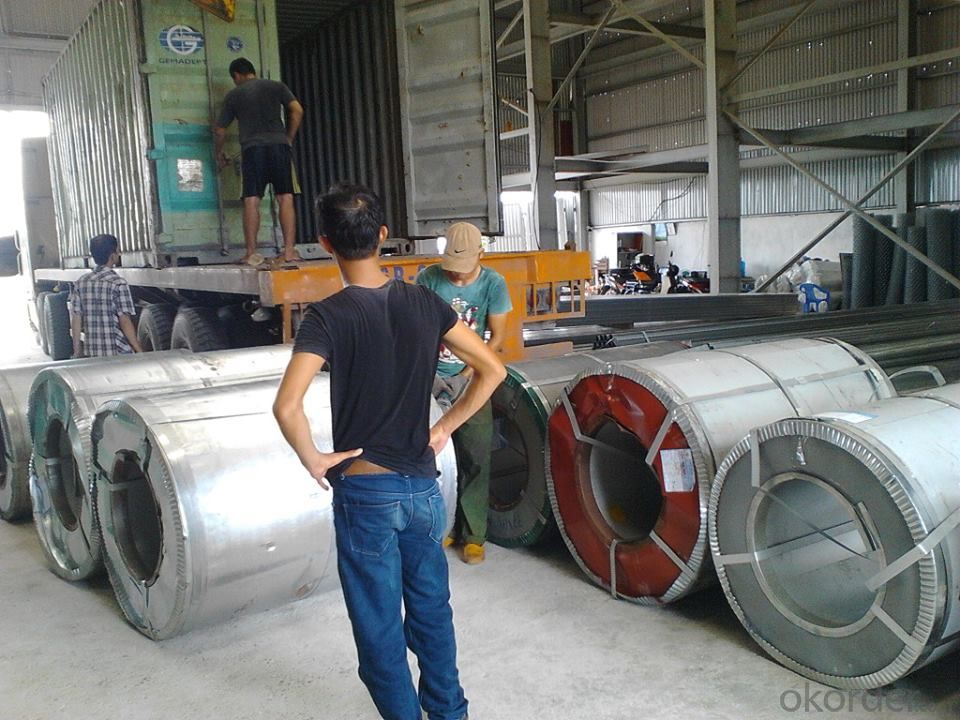
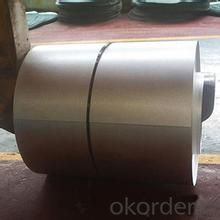
4.Hot Dipped Galvanized Steel Coil SGCC Standard DX51D Specification:
Brand | Hengfeng |
Place of Origin | Shandong, China |
Standard | AISI,ASTM,BS,DIN,GB |
Material | SGCC |
Thickness | 0.14mm-0.8mm |
Width | 600mm-1250mm |
Length | Coil |
Technique | Cold Rolled |
Zinc Coating | 40-150g/m2 |
Coil weight | 3-5 Ton/Tons |
Certificate | ISO9001:2008 |
Surface Treatment | Galvanized, hot-dip |
5.Our factory:
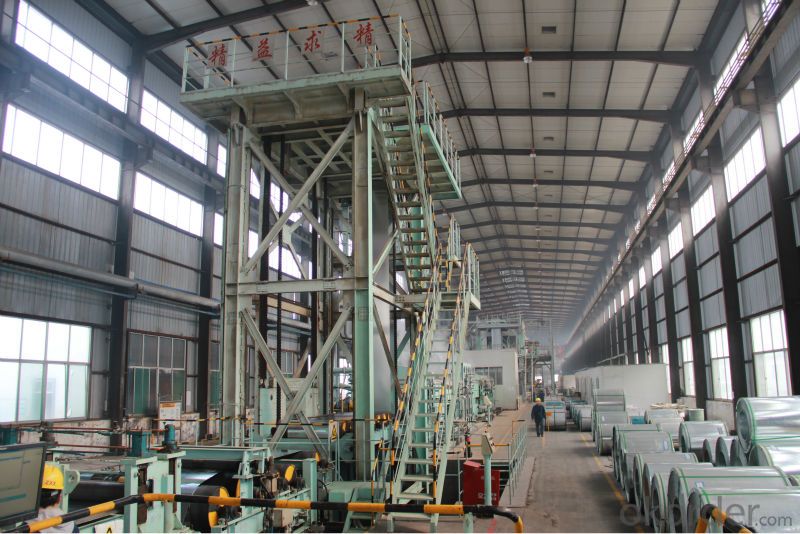
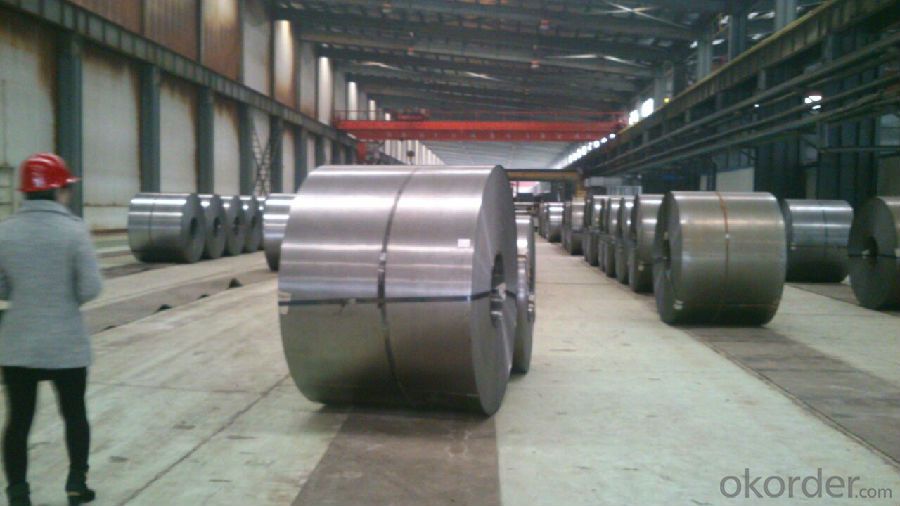
6.FAQ
We have organized several common questions for our clients,may help you sincerely:
①How about your company?
A world class manufacturer & supplier of castings forging in carbon steel and alloy steel,is one of the large-scale professional investment casting production bases in China,consisting of both casting foundry forging and machining factory. Annually more than 8000 tons Precision casting and forging parts are exported to markets in Europe,America and Japan. OEM casting and forging service available according to customer’s requirement.
②How to guarantee the quality of the products?
We have established the international advanced quality management system,every link from raw material to final product we have strict quality test;We resolutely put an end to unqualified products flowing into the market. At the same time, we will provide necessary follow-up service assurance.
③How long can we receive the product after purchase?
In the purchase of product within three working days, We will arrange the factory delivery as soon as possible. The pecific time of receiving is related to the state and position of customers.Commonly 7 to 10 working days can be served.
- Q: Ok, lately I've been taking to making things out of stainless steel chain mallie rings. The problem is that when i make a bracelet or something, the area around the fastener always looks pretty bad. I'm thinking to have a friend who also does chain mallie finish the weave all the way around. This would make it look good but make it impossible to remove.Are there any long term problems with stainless steel on skin? I know some metals will change the color of the skin or make the skin absorb some of the metal. Is this something to worry about with stainless steel?
- Stainless steel contains both nickel and chromium. These two alloys are responsible for most of contact dermatitis in people. Some of my co-workers making steel had such bad reactions to chromium that they had to quit their jobs. Their skin was always inflamed. People don't react to finished stainless steel the same way because the alloys are bonded tightly in the heat treating process. But if you are grinding it and getting the dust on your skin, you could get a contact dermatitis if you are sensitive. I don't think it would absorb into your blood stream or do any long term damage to your skin. If you do get a reaction, you would have to cease your exposure or in a worse case scenario risk getting a body wide reaction like my coworkers. I would not worry about any exposure making rings out of stainless steel. After all, stainless steel is used in sugical implants and most people are fine.
- Q: What is the purpose of steel coils?
- The purpose of steel coils is to efficiently store and transport large quantities of steel in a compact and secure manner.
- Q: How are steel coils used in the production of HVAC ductwork?
- Steel coils are commonly used in the production of HVAC ductwork due to their durability and strength. The coils are typically made of galvanized steel, which provides protection against corrosion and extends the lifespan of the ductwork. The manufacturing process begins with the steel coils being unrolled and cut into the desired length. The coils are then fed through a machine that shapes the steel into a rectangular or round duct form. This shaping process can be done using various techniques such as roll forming or press braking. Once the steel has been formed into the desired duct shape, it is then joined together using various methods such as welding or locking mechanisms. Welding is often used for rectangular ducts, while locking mechanisms like snap locks or Pittsburgh seams are commonly used for round ducts. These joining techniques ensure that the ductwork is secure and airtight. After the ductwork has been assembled, it may undergo additional processes such as insulation or lining. Insulation helps to reduce heat loss or gain, while lining can improve the acoustic properties of the ductwork. These additional steps are often done to meet specific requirements or regulations. Overall, steel coils play a crucial role in the production of HVAC ductwork as they provide strength, durability, and protection against corrosion. The versatility of steel allows for various shapes and sizes of ductwork to be fabricated, making it a popular choice for HVAC systems.
- Q: How are steel coils inspected for thickness?
- Steel coils are inspected for thickness using various methods to ensure their quality and compliance with industry standards. One common method is using a non-contact laser measurement system. In this process, a laser beam is directed towards the surface of the steel coil, and the time it takes for the beam to reflect back is measured. By accurately calculating the time taken, the thickness of the steel coil can be determined. Another method involves using ultrasonic technology. Ultrasonic sensors are used to emit high-frequency sound waves that penetrate the coil. These sound waves bounce back differently depending on the thickness of the steel, allowing the sensors to measure the thickness accurately. Additionally, some manufacturers may opt for an eddy current testing method. This technique involves passing an alternating current through a coil, creating a magnetic field. The thickness of the steel coil affects the impedance of the coil, which can be measured. By analyzing the changes in impedance, the thickness of the steel coil can be evaluated. Furthermore, some companies employ a mechanical method called the caliper method. This method involves using a caliper gauge to physically measure the thickness of the steel coil by applying pressure to the coil and reading the measurement on the caliper. Regardless of the method used, it is crucial for steel coils to be inspected for thickness to ensure they meet the required specifications and provide the desired performance in various applications.
- Q: I live in the Black Hills and I need to re-side my cottage. I like the look of vinyl. I've heard pros and cons about both steel and vinyl. Is steel really that easy to dent? It just doesn't look as 'clean' as vinyl. Also what 3 color combos do you like? My cottage has shutters.
- Steel okorder and pick your colors from there. just choose a setting and clickdrag your colors
- Q: what is the difference between stainless steel 304 (AISI 304) and stainless steel 310 (AISI 310) COR-TEN A
- Weathering steel will rust, but the rust will be adherant and not flake off and be replaced by new rust. Therefore once it rusts it will pretty much stop rusting any more. One (severe) down side is that anything around it will be streaked with rust stains and it will look awful. Some bozo with the Texas Department of Transportation designed a number of freeway interchange overpasses here in Houston using Cor-Ten steel and all of the concrete supports are streaked with red rust stains and it looks like hell. Cameron built an office building here in Houston with a Cor-Ten facade and it is streaked with rust too. They should have gone ahead and spent the money and painted them, but they didn't.
- Q: What are the dimensions of steel coils used in bridge construction?
- The dimensions of steel coils used in bridge construction can vary depending on the specific requirements of the bridge project. However, generally speaking, the dimensions of steel coils used in bridge construction typically range from 0.5 inches to 1 inch in thickness and 36 inches to 72 inches in width. The length of the coils can vary as well, but is commonly around 20 to 40 feet. These dimensions allow for the fabrication of various structural components such as beams, columns, and plates that are essential for the construction of bridges. It is important to note that the dimensions may vary based on the specific design and engineering specifications of the bridge project, as well as the type and load capacity of the bridge being constructed.
- Q: hey... i don't need to change my strings, but i found a set of Bronze acoustic guitar strings by pure tone... i have a few questions on them:can i put them on a steel string guitar? i know i can't put nylon strings on... but i don't see why i can't put bronzethey are light gauze... i have no idea what my current gauze is, but i play in Dropped D tuning... so would the E/D string (6th) be too loose? finally, can you get strings designed to be played in Drop D?any help is apprechiated :D
- I don't see why not. Put them on and try it out.
- Q: How are steel coils inspected for surface finish after processing?
- Steel coils are inspected for surface finish after processing through visual inspection techniques such as using specialized lighting and magnification tools to detect any imperfections, scratches, or blemishes on the coil's surface.
- Q: What are the different testing methods used for steel coils?
- There are several testing methods used for steel coils, including visual inspection, dimensional measurement, hardness testing, tensile testing, chemical analysis, and non-destructive testing techniques such as ultrasonic testing and magnetic particle inspection. These methods help ensure the quality and integrity of steel coils, allowing for accurate assessment of their mechanical properties, composition, and structural soundness.
Send your message to us
Hot Dipped Galvanized Steel Coil SGCC Standard DX51D China Producter
- Loading Port:
- China main port
- Payment Terms:
- TT OR LC
- Min Order Qty:
- 10 m.t.
- Supply Capability:
- 10000000 m.t./month
OKorder Service Pledge
OKorder Financial Service
Similar products
Hot products
Hot Searches
Related keywords
